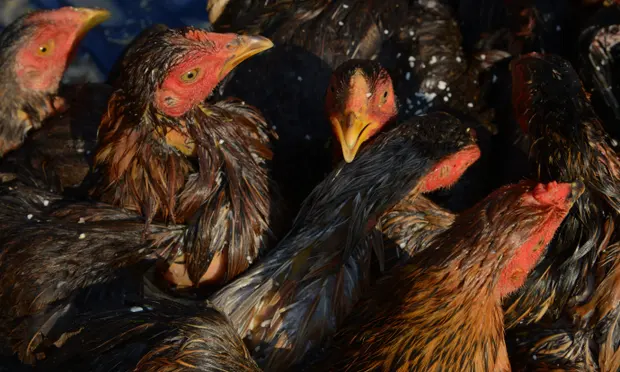The World Health Organization (WHO) has reported that a 56-year-old woman in southern China died after testing positive for H3N8 avian influenza, marking the first human death from that strain of bird flu. While H3N8 is “one of the most frequently found” subtypes of flu in birds, it had not been detected in humans before two cases emerged in China last year, both in April and May.
“The case was detected through the severe acute respiratory infection (SARI) surveillance system. No close contacts of the case developed an infection or symptoms of illness at the time of reporting,” the WHO said in a statement on Monday.
According to the WHO, the woman, who had pre-existing medical conditions including cancer, had been admitted to hospital with severe pneumonia after falling ill in February and died last month. The organization added that the woman probably contracted the virus at a live poultry market and that the risk of further spread is low.
“All three people who contracted H3N8 in China are thought to have been exposed to the virus at live poultry markets,” the WHO said.
The Chinese government has reportedly stepped up monitoring for the H3N8 strain, and the risk of more infections is considered low. However, the constantly evolving nature of influenza viruses means that global surveillance is still necessary to detect changes associated with circulating influenza viruses that may affect human or animal health.
“To infect humans, the H5N1 virus has to attach itself to receptors in the lungs, which the virus lacks the ability to readily bond with,” said William Schaffner, a professor of medicine at Vanderbilt University’s Division of Infectious Diseases. “Forced adaptation to replicating in the lungs is why only poultry workers, who breathe in contaminated fecal dust, are typically infected,” he added.
The H3N8 virus is less dangerous for both wild birds and domestic poultry than H5N1 and is known to have been circulating since 2002 after first emerging in North American waterfowl. It is also known to infect horses, dogs, and seals.
The WHO’s statement on the woman’s death highlights the importance of global surveillance to detect virologic, epidemiologic, and clinical changes associated with circulating influenza viruses which may affect human or animal health. This includes monitoring of live poultry markets, where viruses can easily spread among birds and potentially be transmitted to humans.
“The constantly evolving nature of influenza viruses means that global surveillance is necessary to detect changes associated with circulating influenza viruses that may affect human or animal health,” the WHO said. “Due to the risk of spillover of animal viruses into humans, it is important to strengthen the One Health approach, which involves collaboration across human, animal, and environmental health sectors.”
While the recent case of H3N8 bird flu was reported in China, it is important for countries such as Nigeria to take note of this development. Nigeria, as a country with a significant population of poultry farmers and live poultry markets, is at risk of outbreaks of avian influenza, including the H3N8 strain.
It is therefore important for the Nigeria government to step up monitoring for avian influenza in the country and take measures to prevent the spread of the virus. The government should ensure that live poultry markets are regularly inspected and appropriate measures are taken to prevent the transmission of the virus from birds to humans.
Additionally, it is crucial for the public to be educated on the risks of avian influenza and the precautions they should take when handling live poultry. This includes the importance of washing hands regularly with soap and water, avoiding direct contact with sick or dead poultry, and cooking poultry meat and eggs thoroughly before consumption.
While the risk of the H3N8 strain spreading is currently low, it is important for the government and public to remain vigilant and take necessary measures to prevent the spread of avian influenza.



